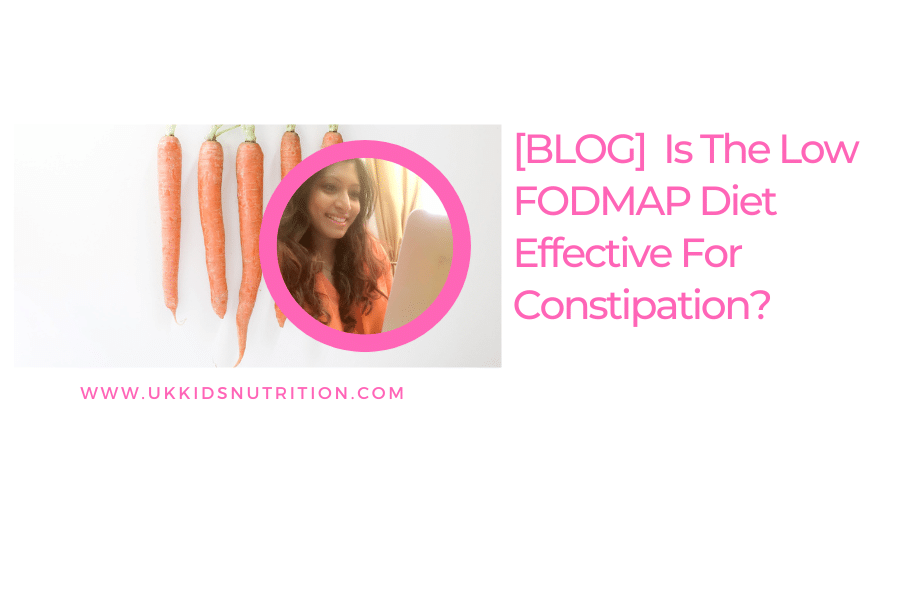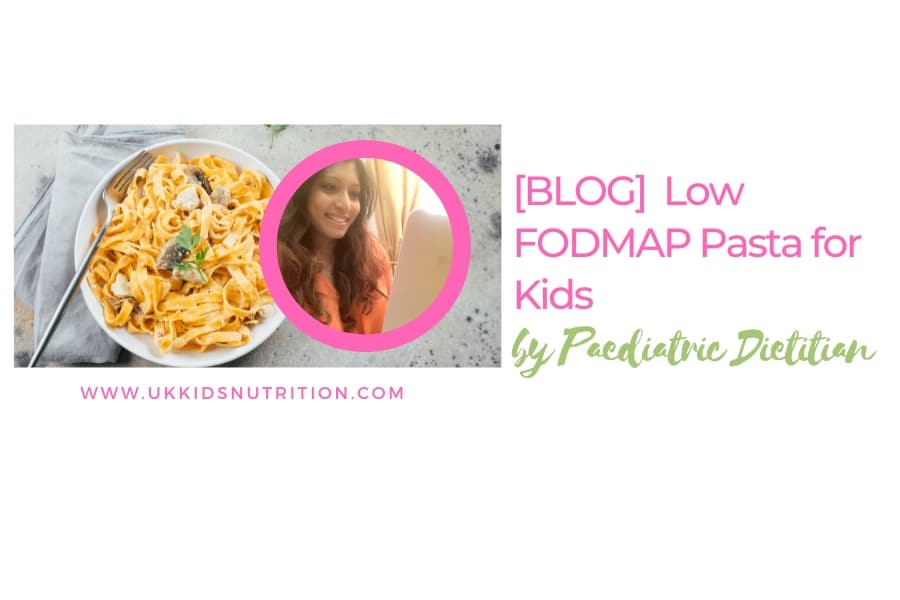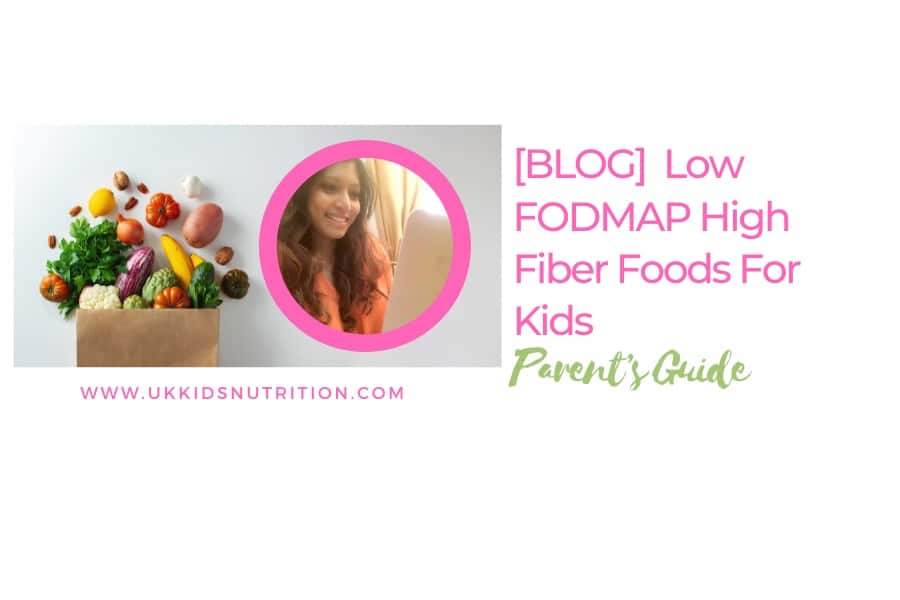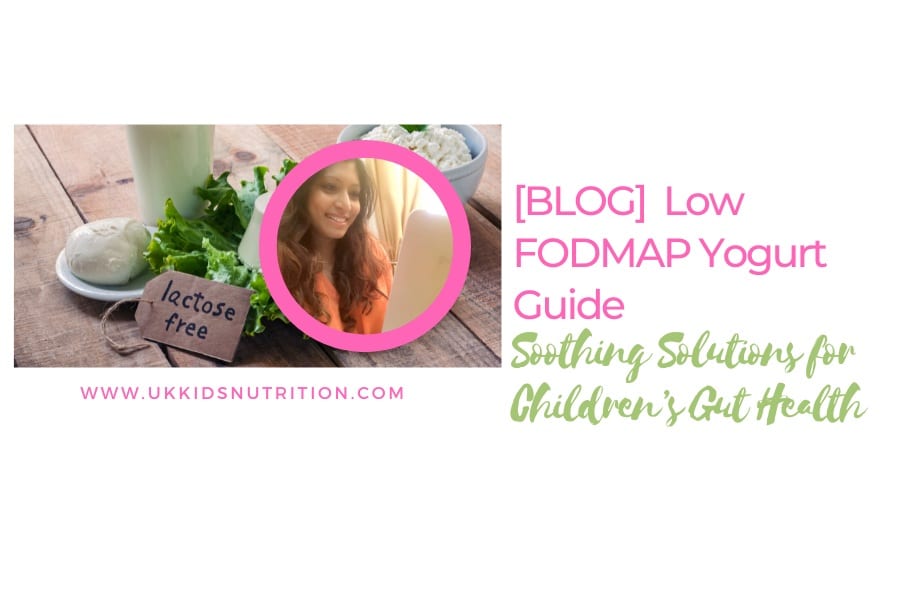If your heart aches seeing your child struggle with constipation, the low FODMAP diet might be a solution worth considering.
This blog post delves into the effectiveness of the Low FODMAP diet for managing constipation in children, highlighting its potential benefits for those suffering from irritable bowel syndrome (IBS).
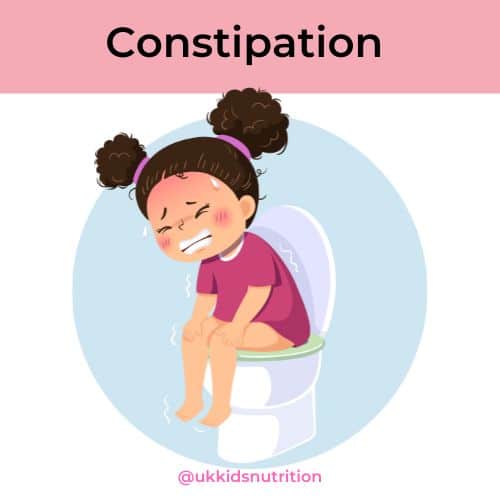
What are the Most Common Causes of Constipation
One in three children struggle with constipation, a common digestive issue.
The root causes can vary, including:
- inadequate intake of bulking (insoluble fibre) and fermentable (soluble fibre)
- fluid intake
- certain medications like iron supplements can affect bowel movements
- and medical conditions like hypothyroidism, neurological disorders, cow’s milk protein allergy, or IBS.
Understanding these root causes is vital to developing an effective plan for constipation relief.
Other Causes of Constipation
Besides dietary factors, constipation in children can stem from various other causes, including environmental changes, emotional factors, and certain health conditions.
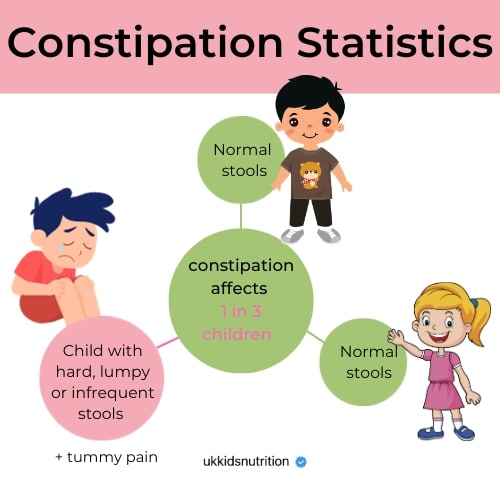
What is the FODMAP diet?
The FODMAP diet, an evidence-based approach, targets specific carbohydrates called FODMAPs – Fermentable Oligosaccharides, Disaccharides, Monosaccharides, and Polyols.
These sugars, often problematic for sensitive digestive systems, are found in a range of foods and can exacerbate symptoms like constipation, diarrhoea, bloating, and abdominal pain.
This elimination diet for constipation is particularly relevant for adults and children with IBS, aiming to identify and eliminate trigger foods.
How Do FODMAPs Cause Constipation?
High FODMAP foods can lead to constipation in children with sensitive bellies due to their fermentable nature.
This affects gut motility and children’s stool consistency.
During digestion, the fermentation of FODMAPs can create a slower transit time in the bowel, leading to harder, drier stools.
Can the FODMAP Diet Help with Constipation?
This specialised elimination diet focuses on reducing high-FODMAP foods.
While effective for many, its success can vary, making it essential to approach this diet under professional dietetic guidance.
Benefits of a Low FODMAP Diet
This medically prescribed dietary approach helps identify specific foods triggering digestive issues.
However, it’s vital to ensure that while following this diet, your child still receives enough fibre to promote healthy digestion.
This limits your children experiencing Low FODMAP diet side effects.
Can Low FODMAP Cause Constipation?
Surprisingly, a low FODMAP diet for IBS constipation can lead to further constipation if not balanced correctly!
Particularly if children are not meeting their daily age-appropriate fibre requirements.
The reduction in high FODMAP foods can inadvertently lead to a decrease in overall dietary fibre intake.
It’s crucial to maintain a balance of soluble and insoluble fibre even on a Low FODMAP diet.
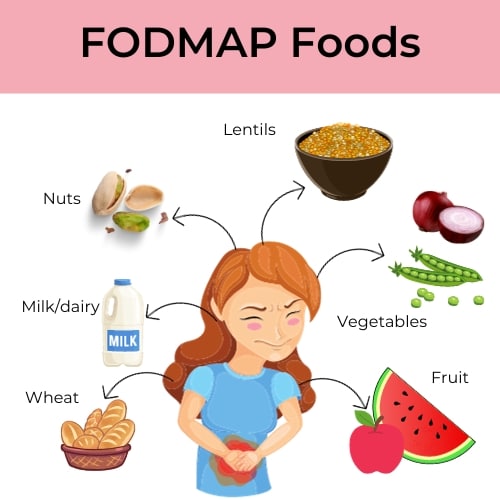
Implementing the Low FODMAP Diet
Breaking Down FODMAP
In digestion, FODMAPs can cause significant discomfort due to their fermentation, leading to symptoms that are particularly acute in children and adults with IBS.
Understanding the specifics of these carbohydrates is key to managing diet effectively.
Mapping out a Low FODMAP Diet
Implementing a Low FODMAP diet is a meticulous process.
It begins with consulting healthcare professionals to rule out other conditions and working with a registered IBS-trained professional like MONASH University-certified paediatric dietitian.
Understanding FODMAP groups and opting for certified low FODMAP foods during the elimination phase is recommended.
The reintroduction phase follows, where specific foods are gradually added back to the diet to pinpoint individual triggers.
The FODMAP Diet for Constipation
This specialised diet involves reducing the intake of high-FODMAP foods, aiming to alleviate constipation and related digestive issues.
Described as an IBS diet plan for both constipation and diarrhoea, it’s seen as a potential game-changer for many suffering from these conditions.
What is a Low FODMAP Diet?
This specialised diet involves reducing the intake of high-FODMAP foods, aiming to alleviate constipation and related digestive issues.
Described as an IBS diet plan for both constipation and diarrhoea, it’s seen as a potential game-changer for many suffering from these conditions.
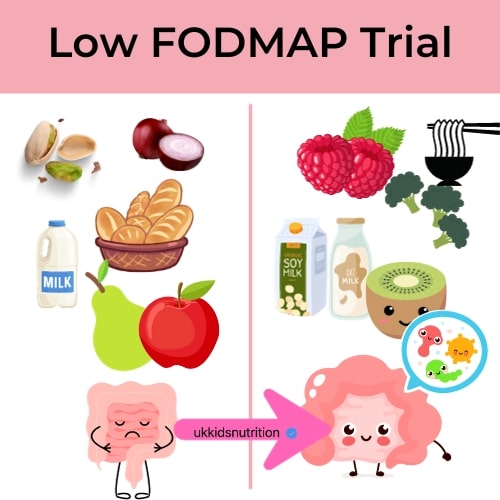
Is a Low FODMAP Diet Good for IBS-C?
While the Low FODMAP diet has gained attention for its potential benefits in managing irritable bowel syndrome (IBS) in adults, it’s important to note that only a handful of randomised controlled trials – the gold standard in research – have examined its effectiveness in children with IBS-related constipation.
However, for children experiencing prolonged constipation who meet the ROME IV criteria for IBS, a trial of the Low FODMAP diet could be a valuable approach.
This diet may help in identifying specific food triggers and provide relief from the symptoms of IBS, offering a tailored dietary strategy to improve their quality of life.
It should however be considered alongside other treatments and lifestyle changes, and not as the first line of treatment.
Before embarking on any dietary changes, especially for managing health conditions like paediatric IBS, it’s crucial to consult with a doctor.
A medical doctor can help rule out other underlying causes of constipation and ensure that the Low FODMAP diet is a suitable and safe option for your child.
After this initial consultation, working closely with a registered pediatric dietitian experienced in IBS is key to effectively managing your child’s dietary needs.
Is a low FODMAP diet safe?
Safety and Efficacy of the Low FODMAP Diet
While the low FODMAP diet is safe when followed under the guidance of a registered pediatric dietitian, it’s important to remember that it is a short-term intervention, not a long-term dietary plan.
It’s typically reserved for children with IBS type constipation or other digestive disorders where FODMAPs trigger symptoms.

What Low FODMAP Foods May Help with Constipation
Low FODMAP foods to help your child poop
Here are some food groups that are generally considered low FODMAP.
Incorporating the following low FODMAP foods for constipation can help alleviate hard stools in children:
- Fruits: Bananas, berries, oranges
- Vegetables: Carrots, courgette and spinach
- Grains: Brown rice, oats and quinoa
- Proteins: tofu, tempeh
- Nuts and seeds: Almonds, peanuts, chia seeds
- Beverages: Water, herbal teas (peppermint), lactose-free milk or low FODMAP plant milk alternatives
Individual tolerance to specific foods can vary, so working with a Kid’s IBS Paediatric dietitian is crucial to creating a personalised meal plan.
They can also help identify the best low FODMAP fibre for constipation.
IBS-C Foods to Avoid
During the diet trial, limit high FODMAP foods that could worsen constipation.
Be cautious with fibre supplements as excessive fibre can exacerbate constipation in some children.
Finally, ask your IBS dietitian to help you tailor the diet to your child’s specific tolerances and triggers.
If you’re tired of struggling with your child’s constipation and would like to gain the knowledge and confidence to manage it effectively, don’t hesitate to inquire about my Happy Belly Club.
Natural Ways to Relieve Constipation
Relieving constipation in children, especially those with IBS, often requires a combination of dietary changes and lifestyle adjustments.
Ensuring adequate hydration and encouraging regular physical activity are fundamental.
Alongside these, a diet rich in a variety of fibres, including ‘low FODMAP fibre for constipation,’ can offer natural relief.
Foods such as carrots, oranges, and oats, which are high in low FODMAP fibres, are gentle on the digestive system and can help alleviate constipation without exacerbating IBS symptoms.
Additionally, integrating natural supplements like evidence-based probiotics, chia puddings, and wholemeal bread, as well as encouraging children to eat the skins of fruits and vegetables, can further aid in maintaining healthy bowel movements.
It’s crucial to balance these fibres within the Low FODMAP diet to manage constipation effectively while ensuring overall gut health.
To learn more see Natural Laxatives for Kids with Constipation.
What else can you do to reduce constipation for your child?
Two Kiwi Fruit a Day to Keep Constipation at Bay
Kiwifruit, a low FODMAP food known for its high fibre content, has proven effective in alleviating constipation, especially in cases of chronic constipation.
Its unique composition helps soften stools, easing bowel movements.
Learn more about kiwifruit in Golden Kiwi or Green Kiwi for Constipation in Children.
Foods That Cause Constipation
Certain high FODMAP foods can trigger or worsen constipation so try to limit these.
Identifying and avoiding these foods is crucial in managing IBS-related constipation.
Conclusion
Managing constipation in children, particularly those with IBS can be challenging.
The Low FODMAP diet offers a structured approach to identifying and managing trigger foods.
However, it’s crucial to undertake this diet with professional guidance to maintain a balanced nutritional intake.
If you’re considering this diet for your child or struggling with managing their constipation, the Happy Belly Club can provide the support you need.

Let Me Help
If your child is battling constipation, bloating, or tummy pain, the Happy Belly Formula can help.
Join our 1-2-1 Happy Belly Club or book a discovery call to learn more about our program tailored to support your child’s journey to better gut health and well-being.
- 1-2-1 Happy Belly Club (Gut Health Programme)
- Or book a discovery call to learn more about the programme
